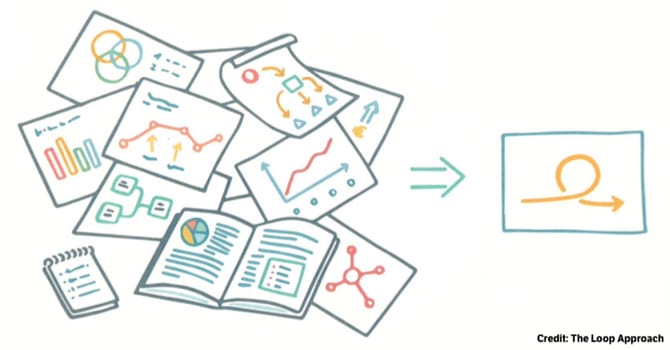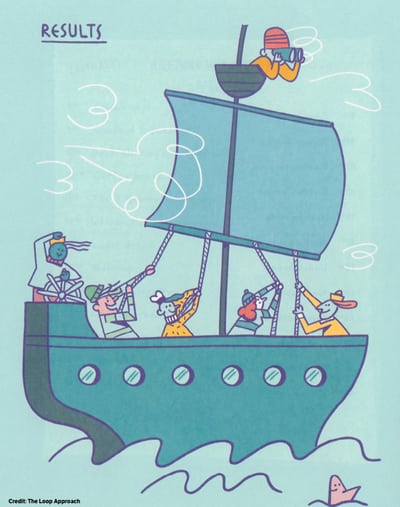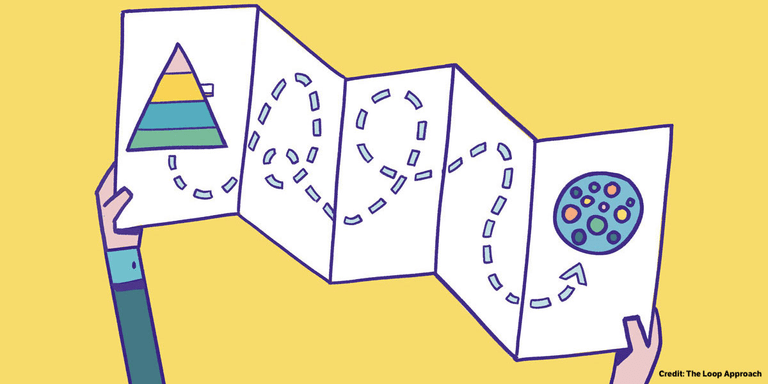Is change management evolving from a very “predict and control” mode to a more agile one? This is what’s advocated by The Loop Approach (TLA), a book in which S. Klein and B. Hughes suggest to rethink the transformation process by basing it on an iterative, transformational and discovery-oriented approach, rather than a final objective driven one.
[...] a process during which the client realizes that transformation isn't linear or predictable, so what is needed is rather a framework where it can happen in an evolutionary fashion. [...] transforming the mindset cannot be a completely top-down process. It can only happen in a quasi organic way.
In other words, the mindset is transformed through a process which already evidences the very mindset we're trying to instill.

Teams - the core of the transformation in the Loop approach
In a very interesting way, the "Loop approach” proposes to base organizational transformation on teams: building self-organized teams, aware of their situation and seeking to learn and evolve.
The transformation begins with a team diagnosis based on 7 parameters:
- Clear alignment
- The full use of everyone's potential
- The distribution of authority
- Effective individuals
- An effective team
- High adaptability
- Conflict management and feedback skills
An iterative approach towards a conscious team
Furthermore the book proposes a loop approach to help the team reflects on the processes and tools they use today, and for each of the parameters identify what is missing or could be improved.
To move forward in the agile transformation of the team, a series of workshops are proposed which provide options for evolving, for example:
- Clarify and codify decision-making through consent or through the advice process
- Distribute authority and continuously adapt the team structure through a role system
- Become more efficient personally with the “Getting Things Done” methodology
- Make feedback accessible through group "Hot Chair" sessions
- ...
Following these workshops, the team is equipped to develop further by itself, and continue its journey alone no matter the objectives of the transformation.

An agile transformation adapted to all
What seems to me to be particularly relevant in the TLA approach is that it reuses and aggregates existing concepts (Holacracy, Getting Things Done, Nonviolent Communication, …) to formulate a holistic and iterative approach that can be adapted to any team. Some teams will already be well equipped in delivering value and may focus their efforts on employee development and interpersonal relationships. Others will take the opportunity to define an evolutionary structure that allows them to face the challenges they face today and tomorrow.
As agility facilitator in organisations, we have been advocating an iterative approach to all situations for some time now. This book perfectly reflects this mindset and gives concrete suggestions. To put in all hands!
Are you also reflecting on how to allow your team or organisation to evolve? Don't hesitate to contact us to have a good chat over a (good) coffee.

